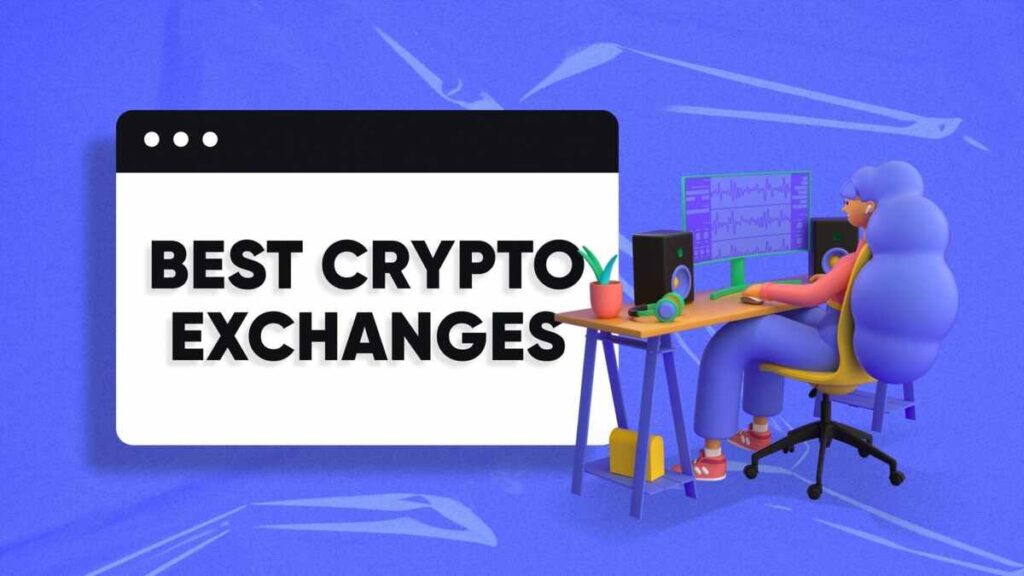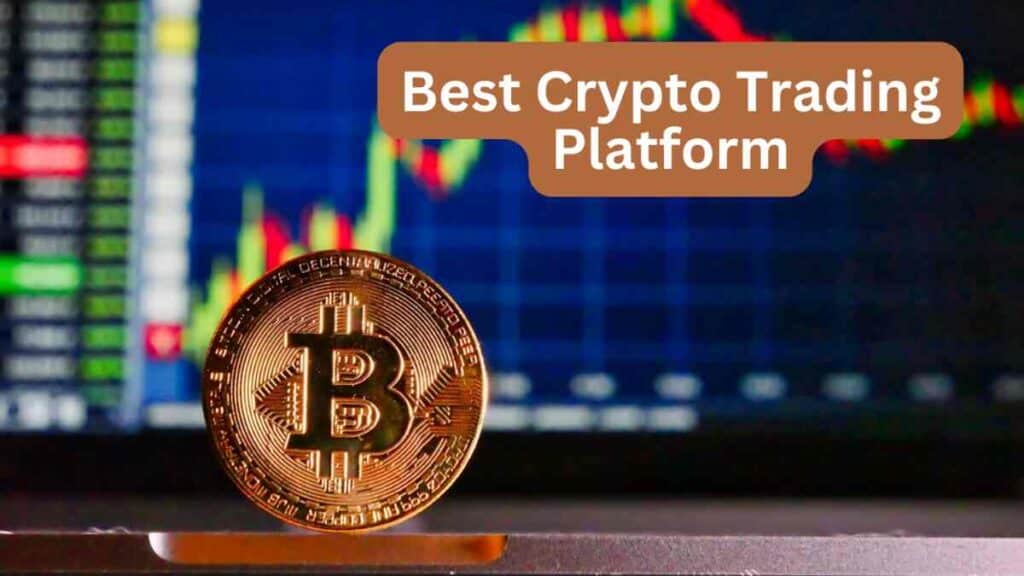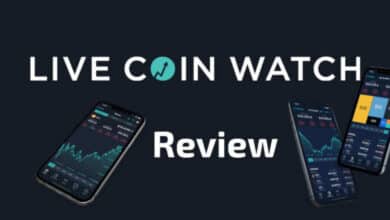Best Crypto Trading Platform: The Best Powerful Comprehensive Guide

Best Crypto Trading Platform the crypto trading landscape has expanded significantly over the past few years, with more platforms emerging, each offering unique features that cater to different kinds of traders. Whether you’re a beginner or an advanced trader, finding the best crypto trading platform can make a world of difference in terms of security, user experience, fees, and available assets.
In this guide, we will explore some of the top cryptocurrency trading platforms that are currently dominating the market. By understanding their features and advantages, you’ll be better equipped to make informed decisions when choosing where to trade.
What is a Crypto Trading Platform?
A crypto trading platform is a digital marketplace where users can buy, sell, or trade cryptocurrencies. These platforms provide an interface for users to access the market, set trades, analyze charts, and sometimes even engage in advanced trading strategies like margin trading and futures. Some platforms also offer educational resources, portfolio management, and additional services like staking and lending.
Choosing the best platform depends on several factors, including:
- Security
- Fees and commissions
- Available cryptocurrencies
- Trading features
- User interface and experience
- Regulation and compliance
Crucial Elements of a Crypto Trading Platform

When evaluating a trading platform, it’s essential to consider specific factors that can directly impact your trading experience.
1. Security
Security is arguably the most critical feature of any crypto trading platform. A platform must offer robust security measures to protect users’ funds from potential hacks or theft. Key security features include:
- Two-factor authentication (2FA): An additional layer of security that requires not only a password and username but also something only the user has (like a mobile device).
- Cold storage of funds: Keeping a significant portion of users’ assets in offline wallets, which are less vulnerable to hacking.
- Regulation and licensing: It’s essential to choose platforms that are regulated and compliant with local laws, ensuring an added layer of trust.
2. Fees and Commissions
Transaction fees can vary significantly between platforms. Some platforms charge a flat fee, while others have a tiered system where higher-volume traders get discounted rates. Be sure to check if the platform charges for:
- Deposits and withdrawals
- Maker and taker fees (fees for placing and taking orders)
- Network fees (applicable when transferring crypto to and from wallets)
Lower fees can have a significant impact, especially for high-frequency traders or those who trade large volumes.
3. Available Cryptocurrencies
A wide selection of cryptocurrencies allows traders to diversify their portfolio and explore various opportunities. Some platforms offer just the major coins like Bitcoin (BTC), Ethereum (ETH), and Ripple (XRP), while others provide hundreds of altcoins and DeFi tokens.
4. User Interface and Experience
A user-friendly interface is crucial, especially for beginners. Some platforms offer simplified interfaces for users who are new to trading, while others provide more complex tools, including technical analysis indicators and customizable dashboards, designed for seasoned traders.
5. Liquidity
Liquidity refers to how easily an asset can be bought or sold on the platform without significantly affecting its price. Large trades may benefit greatly from smoother transactions and reduced slippage, which are guaranteed by high liquidity.
6. Advanced Trading Features
Some advanced platforms offer:
- Margin trading: Allows traders to borrow funds to increase their potential returns, though it comes with increased risks.
- Futures contracts: A form of derivatives trading, where traders speculate on the future price of a cryptocurrency.
- Stop-loss orders: Enables users to set a specific price at which to sell to limit losses.
- Staking and lending: Some platforms allow users to earn passive income through staking or lending their crypto.
7. Mobile Trading
For traders who are constantly on the move, having a mobile-friendly platform is crucial. Most leading platforms offer dedicated apps with full functionality, ensuring traders can execute trades, monitor the market, and manage their portfolios from anywhere.
Top 5 Crypto Trading Platforms in 2024
Let’s dive into the leading crypto trading platforms for 2024, analyzing their strengths, weaknesses, and unique features.
1. Binance
Binance is widely recognized as the largest and most diverse cryptocurrency exchange in the world. It offers access to over 500 cryptocurrencies and provides a comprehensive range of tools and features for all levels of traders.
Key Features:
- Low fees: Binance offers some of the most competitive fees in the market, with a standard trading fee of 0.1%.
- Advanced charting tools: Ideal for professional traders.
- High liquidity: Ensures smoother transactions and then less price slippage.
- Wide range of cryptocurrencies: Including DeFi tokens, altcoins, and then major stablecoins.
- Security features: Binance implements robust security measures, including two-factor authentication and then cold storage for user funds.
Cons:
- Binance has faced regulatory scrutiny in certain regions, leading to restrictions for some users.
2. Coinbase

Coinbase is one of the most popular crypto exchanges, especially in the U.S. Its user-friendly interface makes it ideal for beginners, while its secure infrastructure provides peace of mind to all traders.
Key Features:
- Regulated and then secure: Fully licensed and then regulated in the U.S., making it a safe choice for traders.
- Educational resources: Provides a comprehensive range of tutorials and then guides for beginners.
- Integrated wallet: Coinbase offers a secure digital wallet for storing crypto assets.
- Simple interface: Perfect for novice traders.
Cons:
- Higher fees: Compared to other platforms like Binance, Coinbase’s fees are relatively high.
3. Kraken
Kraken is known for its security-first approach, and then it is a trusted platform for both new and then experienced traders. It supports a wide range of cryptocurrencies and then offers various trading options, including margin and then futures trading.
Key Features:
- High security: With an impeccable record for security, Kraken offers features like cold storage and then 2FA.
- Liquidity: Kraken is known for its high liquidity, ensuring traders can execute large orders with minimal price disruption.
- Low fees: Kraken provides affordable rates, particularly for traders with large trading volumes.
Cons:
- Complex interface: May not be suitable for beginners due to its more complex trading dashboard.
4. KuCoin
KuCoin is another global platform offering access to a vast array of altcoins and then DeFi tokens. It has earned a reputation for offering competitive fees and then providing various ways for users to earn passive income through staking and then lending.
Key Features:
- Low fees: KuCoin has a very competitive fee structure.
- Wide range of cryptocurrencies: One of the largest selections of altcoins and then DeFi tokens.
- Staking and lending services: Users can earn rewards by staking their crypto or lending it to others.
- Mobile-friendly: KuCoin’s mobile app provides a full suite of trading features.
Cons:
- Not as beginner-friendly: The interface might be overwhelming for those new to crypto trading.
5. Bitfinex
Bitfinex is a well-established platform catering to professional traders. It offers advanced trading features, including margin and then lending services, and then supports a wide array of cryptocurrencies.
Key Features:
- Advanced trading tools: Bitfinex offers margin trading, stop-loss orders, and then derivatives trading.
- High liquidity: Ensures seamless trading experiences even with large transactions.
- Low fees: Offers a competitive fee structure for high-volume traders.
Cons:
- Complicated interface: Bitfinex may not be suitable for beginner traders due to its complex layout and then advanced features.
Conclusion: Choosing the Best Crypto Trading Platform
Selecting the best crypto trading platform ultimately comes down to your trading goals, experience level, and then features you prioritize. Whether you are looking for low fees, a user-friendly interface, or advanced trading options, platforms like Binance, Coinbase, Kraken, KuCoin, and then Bitfinex have something to offer.
Security, liquidity, fees, and then range of cryptocurrencies available are the primary factors to consider when making your decision. We recommend evaluating these platforms carefully, ensuring they meet your trading needs before committing your assets.
Read more: Hamster Kombat Price





